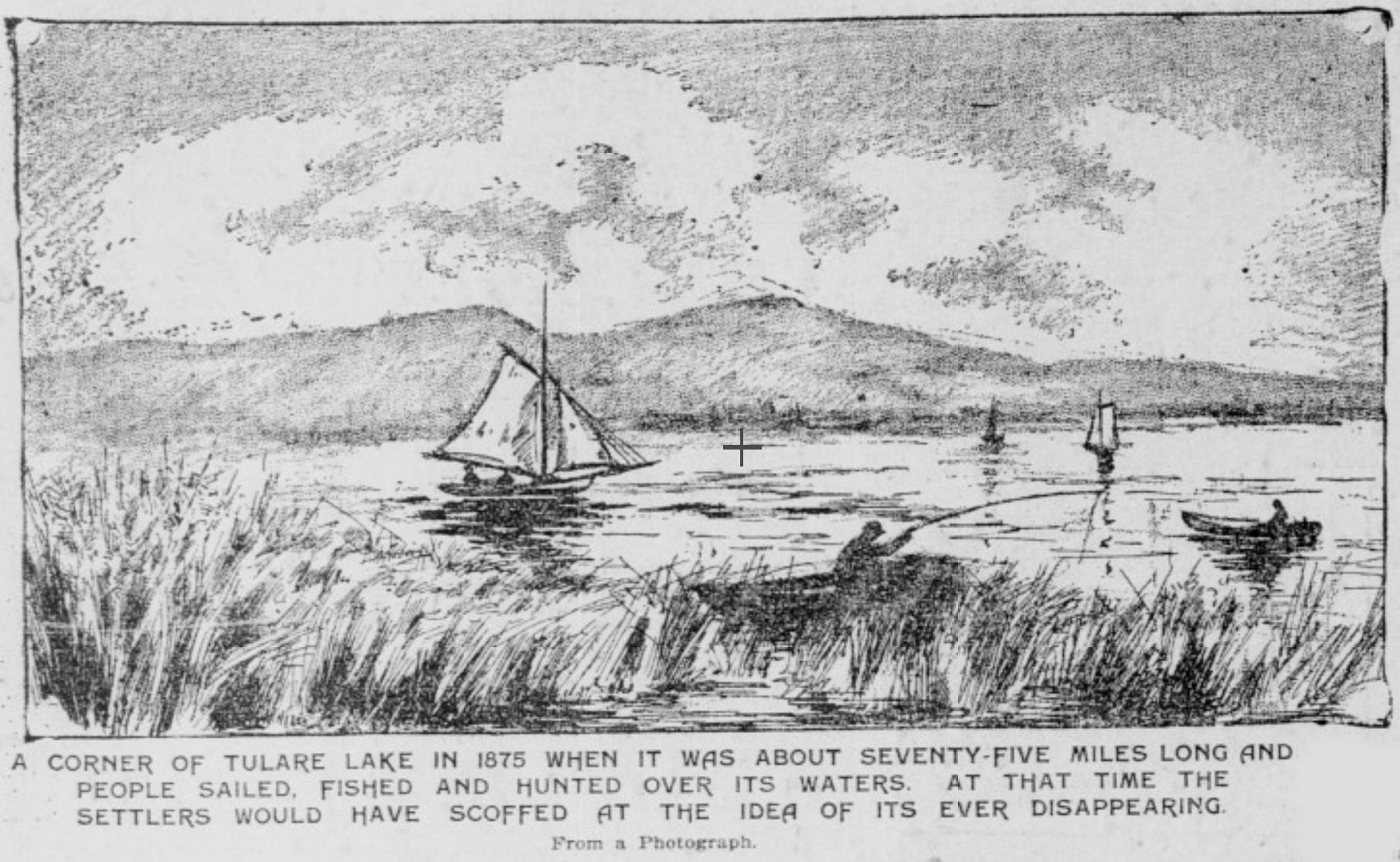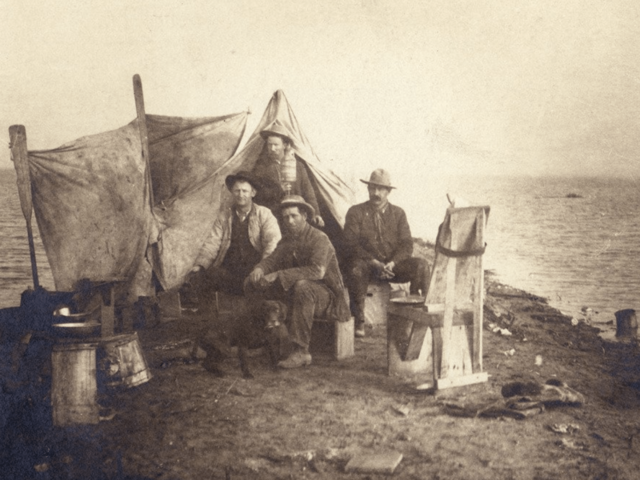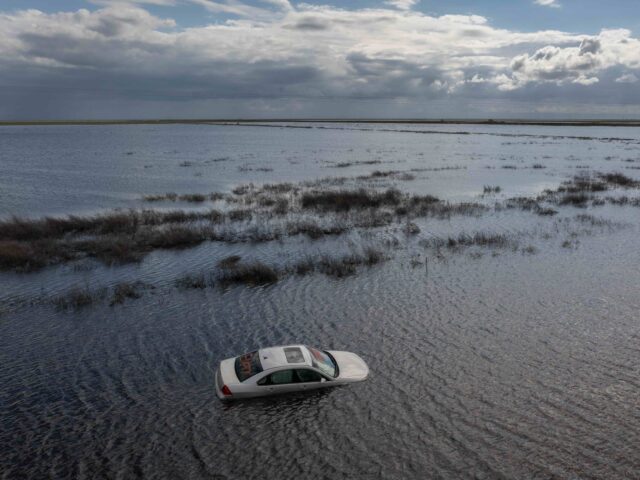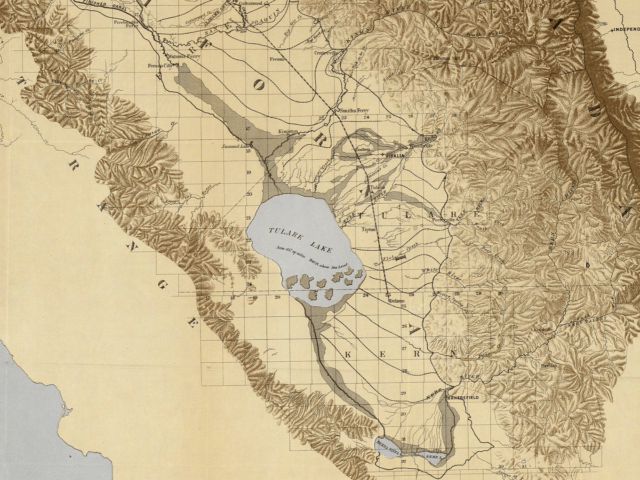Tulare Lake, a historic freshwater lake that dried up due to water diversions for agriculture, is set to return — perhaps for the long term — as a result of recent heavy rains and flooding, and anticipated spring snowmelt.

Image from the Aug 14, 1898 issue of the San Francisco Call, from an article titled “Tulare Lake Dried Up: Disappearance of the Largest Body of Fresh Water in California” (Wikimedia Commons)

A group of unidentified men and a dog camping at the shores of Tulare Lake. This image is now housed at the Sarah A. Mooney Memorial Museum in Lemoore, CA. It is one of two photographs which survive of the historic lake. (Wikimedia Commons)
As Breitbart News noted last month:
Rain and snow continue to pound California in the season’s 11th “atmospheric river,” and are bringing water in such volumes that an old inland freshwater body, Tulare Lake, could be restored for the first time in 40 years.
As Dan Waters noted at CalMatters.org, the lake, in the southern Central Valley region, dried up after water diversions to farms and the building of dams.
It was last filled in the wet winter of 1983, but may come back.
Now, the New York Times reports, the lake is back — and may threaten the global food supply:
[E]ven longtime residents have been staggered this year by the brute swiftness with which Tulare Lake has resurfaced: In less than three weeks, a parched expanse of 30 square miles has been transformed by furious storms into a vast and rising sea.
The lake’s rebirth has become a slow-motion disaster for farmers and residents in Kings County, home to 152,000 residents and a $2 billion agricultural industry that sends cotton, tomatoes, safflower, pistachios, milk and more around the planet. The wider and deeper Tulare Lake gets, the greater the risk that entire harvests will be lost, homes will be submerged and businesses will go under.
…
Mark Grewal, an agricultural consultant and former executive at the dominant J.G. Boswell Company, one of the largest privately owned farms in the nation, said that the long-term, regionwide economic impact could be exponentially higher than in 1983 because the commodities that are now grown — high-end crops such as nuts, tomatoes and Pima cotton — are much costlier and are spiking in value with inflation. The region is so crucial to the world’s supply that sustained substantial flooding could lead to higher prices for consumers.
The Times notes that Tulare Lake could take up more than 200 square miles, and could remain for years.
Joel B. Pollak is Senior Editor-at-Large at Breitbart News and the host of Breitbart News Sunday on Sirius XM Patriot on Sunday evenings from 7 p.m. to 10 p.m. ET (4 p.m. to 7 p.m. PT). He is the author of the new biography, Rhoda: ‘Comrade Kadalie, You Are Out of Order’. He is also the author of the recent e-book, Neither Free nor Fair: The 2020 U.S. Presidential Election. He is a winner of the 2018 Robert Novak Journalism Alumni Fellowship. Follow him on Twitter at @joelpollak.


COMMENTS
Please let us know if you're having issues with commenting.